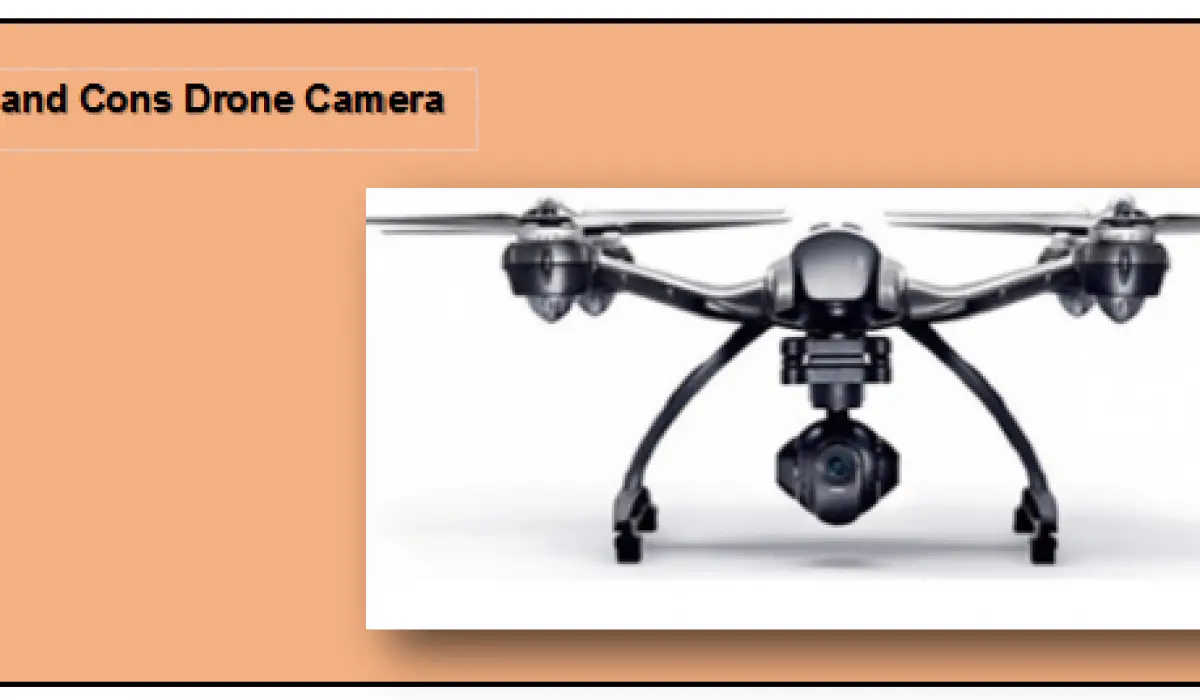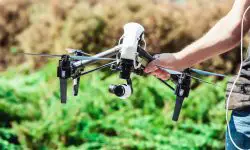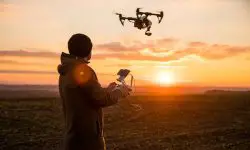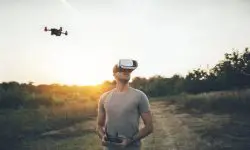As an Amazon Associate I earn from qualifying purchases.
The drone technology is one that has been growing really fast thanks to the growth and advancement in technology. Drones were mainly a preserve of the few industry professionals including military personnel and other environmental technicians. Most drones are mainly used for surveillance purposes and this is why the rapid technological advancement led to the development of high-powered drones fitted with very powerful cameras. The drone camera technology has been around since the invention of the drone but the nature and the quality of the camera attached to the drone continues to improve with every version.
Some drone cameras come already attached to the drone while others require that you attach and detach whenever there is need for a camera. While the choice of which one to go for depends entirely on your need and convenience, it is important to understand some of the best qualities of drone cameras and what their advantage and disadvantages are. Here are some of the pros and cons of drone cameras.
Pros:
1. Autonomous View
One advantage of a drone camera is the fact that it gives you the privilege of seeing where you are flying to without the need to physically look at the drone and its position. This means that you do not have to keep looking up and maintaining your sight of the drone as you fly it. This not only makes it interesting and worthwhile to fly but it also gives you full control of the drone in your palm. Additionally, you do not have to keep looking up as this may also have a negative impact on your vision especially if you have to look directly at the sun while attempting to visually locate your drone.
2. Easy to Change Settings
Another important advantage of drone camera is that you can be able to make some important changes to the camera settings while the drone is still airborne especially if you have a First Person View (FPV) camera. Instead of having to bring down the drone in order to make changes to the settings, you can easily do this when the drone is 500 feet above ground and this gives you independence and saves you valuable time.
3. Adds Value to the Quality of Work
Having a camera attached to your drone is important because it allows you to do more in terms of work than if you did not have one. For instance, unlike other aerial systems, drones with cameras allows you to record video and images from high above the ground and collect valuable information that can be proven with real-time images and video footage. All these can be achieved at a much lower cost than it would have been if you had to collect this data with the help of a helicopter.
Cons:
1. Limited Flexibility
One problem with having a drone camera is that it usually comes attached to the drone which limits its focal length. This often makes it hard for one to zoom in and out on an object when you want to take high quality images. You may end up getting poor footage or images especially if you are using drone cameras with low shooting ranges. However, there are drone cameras with very powerful shooting ranges that can record very high quality videos and images from up to 1000 feet above ground.
2. It Requires Expertise
Like everything else, taking photos and videos from above ground with the help of a drone camera requires some level of expertise and experience that not many people have. There are too many obstructions when taking photos from high up in the ground. This includes cloud shadows, wind disturbance and so on. Also, shots taken when the drone is in motion requires some training and expertise in order to get the best shot.
Conclusion:
Drone cameras are here to stay and they are not about to be phased out. Most of the problems and challenges we face today will be addressed with future technology that will ensure drones are fitted with cameras that are self-sufficient in terms of settings and capture. All you will be required to do is send the drone to the sky and give it instructions and the camera will do the rest for you. For now, drone cameras are here with us and we are not about to let go.
Amazon and the Amazon logo are trademarks of Amazon.com, Inc, or its affiliates.










